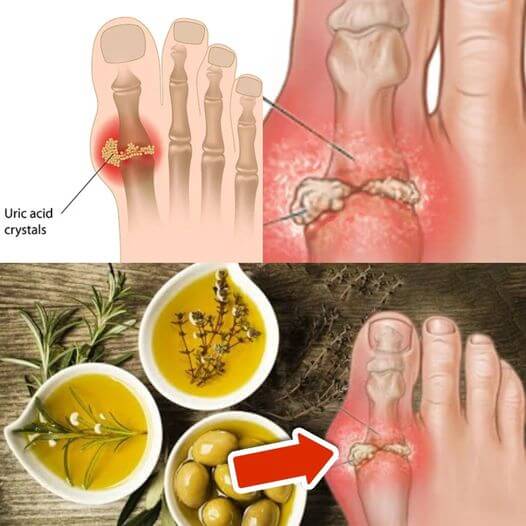8 Simple Ways to Naturally Reduce Excess Uric Acid
8 Simple Ways to Naturally Reduce Excess Uric Acid
Gout, kidney stones, and joint pain are among the unpleasant illnesses that can result from high uric acid levels in the body. Fortunately, lowering uric acid is not as difficult as you would assume. You may successfully reduce your uric acid levels and enhance your general health by making a few dietary and lifestyle adjustments. Here are eight natural methods to help get rid of too much uric acid:
1. Stay Hydrated – Water is Key
Drinking plenty of water helps dilute uric acid and supports your kidneys in flushing it out through urine.
Tip: Aim for 8-10 glasses of water daily. Try herbal teas or infused water (lemon or cucumber) to add variety.
2. Increase Fiber Intake
Fiber aids digestion and promotes regular bowel movements, helping your body eliminate uric acid. It also balances blood sugar, reducing uric acid spikes.
Tip: Include fiber-rich foods like oats, whole grains, fruits, vegetables, and chia seeds in your meals.
3. Limit Foods High in Purines
Purines in certain foods break down into uric acid. Reducing purine-rich foods can help prevent uric acid buildup.
Avoid: Red meat, organ meats (liver, kidneys), shellfish, sardines, and alcohol (especially beer).
Alternatives: Choose lean proteins like chicken, turkey, eggs, or plant-based options such as tofu and legumes.
4. Drink Lemon Water for Alkalization
Lemon juice helps alkalize the body, neutralizing uric acid, and making it easier for your kidneys to filter. Vitamin C in lemons also reduces uric acid.
Tip: Start your day with warm lemon water by squeezing half a lemon into a glass of water.
5. Cut Down on Sugary Foods and Drinks
Fructose, a sugar found in processed foods and sugary drinks, boosts uric acid production. Cutting back can help manage levels.
Avoid: Soda, sugary fruit juices, candy, and processed snacks.
Alternative: Opt for water, herbal teas, or natural sweeteners like honey or stevia (in moderation).
6. Add Cherries and Berries to Your Diet
Tart cherries and berries like strawberries and blueberries are rich in antioxidants and can help lower uric acid and reduce inflammation.
Tip: Snack on fresh cherries or drink cherry juice regularly. Add berries to your breakfast or smoothies for a health boost.
7. Use Apple Cider Vinegar
Apple cider vinegar has acetic acid, which helps break down uric acid and improve kidney function.
Tip: Mix 1 tablespoon of apple cider vinegar in a glass of water and drink it once or twice a day. Always dilute to protect your teeth and stomach.
8. Exercise Regularly for Better Kidney Health
Regular exercise improves circulation and metabolism, supporting your kidneys in eliminating uric acid. It also helps maintain a healthy weight, reducing the risk of uric acid buildup.
Tip: Engage in moderate activities like walking, swimming, cycling, or yoga for at least 30 minutes daily. Avoid overexertion, as intense workouts may temporarily raise uric acid levels.
Bonus: Manage Stress
Increased inflammation brought on by stress may be a factor in elevated uric acid levels. To manage stress, use relaxation methods like deep breathing, meditation, or make sure you get enough sleep.
In summary:
It’s easier than you would think to naturally lower uric acid levels. You may successfully control your uric acid and avoid associated health problems by drinking enough of water, eating the correct meals, and using natural therapies like lemon water, cherries, and apple cider vinegar. For a healthy tomorrow, begin implementing these simple adjustments now!
Increased inflammation brought on by stress may be a factor in elevated uric acid levels. To manage stress, use relaxation methods like deep breathing, meditation, or make sure you get enough sleep.
In summary:
It’s easier than you would think to naturally lower uric acid levels. You may successfully control your uric acid and avoid associated health problems by drinking enough of water, eating the correct meals, and using natural therapies like lemon water, cherries, and apple cider vinegar. For a healthy tomorrow, begin implementing these simple adjustments now!

